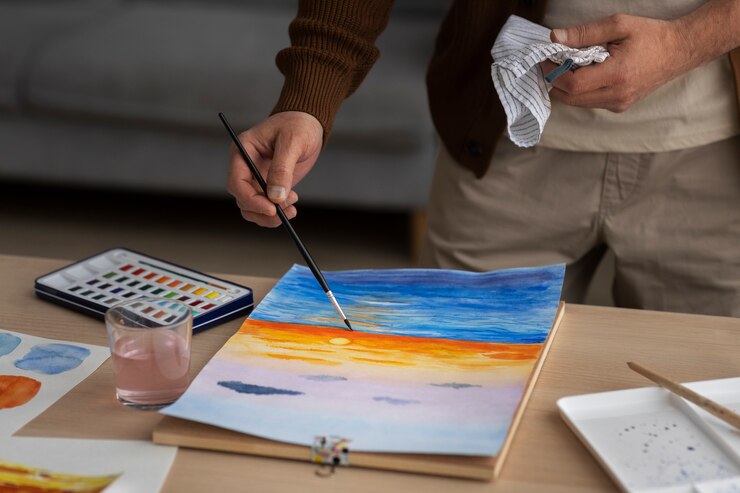Embarking on a new artistic project often requires more than just creative inspiration—it requires careful financial planning and budgeting. Whether you’re planning a new series of paintings, a photography exhibition, a film, or any other creative endeavor, understanding how to effectively manage and secure funding is essential. Read More
Understanding Your Project Budget
Before seeking funds, it’s crucial to develop a comprehensive budget that outlines all anticipated expenses for your project. Consider the following elements:
- Materials and Supplies: Estimate costs for art supplies, equipment, tools, and materials needed to create your artwork or complete your project.
- Production Costs: Include expenses related to production, such as studio rental fees, printing costs, technical equipment (cameras, lenses, editing software), and any necessary permits or licenses.
- Marketing and Promotion: Budget for marketing materials, website development, social media advertising, exhibition fees, and promotional activities to reach your target audience.
- Labor and Professional Fees: Factor in costs for hiring assistants, collaborators, technicians, or consultants who contribute to the project’s execution.
- Contingency Fund: Allocate a contingency fund for unexpected expenses or emergencies that may arise during the project.
Strategies to Find Funds for Your Project
- Grants and Fellowships: Research and apply for grants, fellowships, and funding opportunities offered by arts organizations, foundations, government agencies, and cultural institutions. Tailor your applications to align with the mission and criteria of each funding source.
- Crowdfunding: Launch a crowdfunding campaign on platforms like Kickstarter, Indiegogo, or GoFundMe to raise funds directly from supporters, friends, family, and the broader community. Offer unique rewards or incentives to encourage donations.
- Artist Residencies: Apply for artist residencies that provide funding, studio space, and living accommodations for a specified period. Residencies can also offer valuable networking opportunities and exposure for your work.
- Sponsorships and Partnerships: Seek sponsorship or partnership opportunities with businesses, brands, or organizations that align with your artistic vision. Offer promotional opportunities or exclusive benefits in exchange for financial support or in-kind donations.
- Sales and Commissions: Generate income through the sale of artworks, commissions, or creative services. Consider hosting exhibitions, participating in art fairs, or selling prints and merchandise to generate revenue.
Practical Tips for Budgeting Success
- Research and Plan Ahead: Conduct thorough research to estimate costs accurately and plan your budget accordingly. Consider multiple scenarios and prioritize essential expenses to stay within financial limits.
- Track Expenses: Maintain detailed records of all expenses and financial transactions related to your project. Use budgeting tools or spreadsheets to track spending and monitor your budget in real-time.
- Negotiate and Compare Prices: Seek competitive bids, negotiate pricing with suppliers or vendors, and explore cost-saving alternatives without compromising quality.
- Seek Professional Advice: Consult with financial advisors, accountants, or arts administrators who specialize in budgeting and financial management for artists. They can provide guidance on tax implications, funding strategies, and financial planning.
- Review and Adjust: Regularly review your budget and financial projections throughout the project lifecycle. Adjust allocations as needed to accommodate changes in expenses or unforeseen circumstances.
Conclusion
Budgeting for artistic projects requires foresight, planning, and resourcefulness to ensure financial sustainability and successful execution. By developing a detailed budget, exploring diverse funding opportunities, and implementing practical budgeting tips, artists can effectively fund their next project while maintaining creative integrity. Remember, financial planning is not just about managing expenses—it’s about empowering artistic vision and realizing creative aspirations through strategic financial management. With these strategies in place, artists can navigate the complexities of budgeting with confidence and focus on bringing their artistic visions to life.

